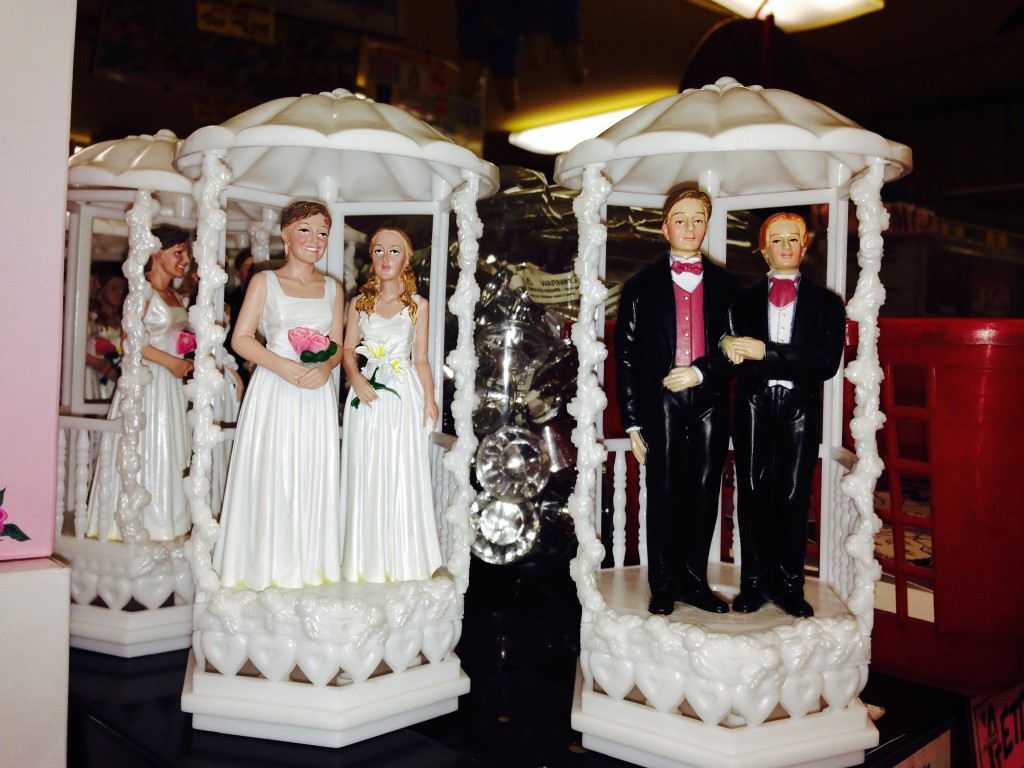In 2012, Robert and Cynthia Gifford told a lesbian couple who wanted to hold their rustic wedding at the Giffords’ upstate farm to search for another venue. The couple sued. At the time, same-sex marriage had been legal in New York for only a year, and no court had yet considered such a case under the state’s Human Rights law.
Since then, marriage rights have expanded dramatically across the country, and two weeks ago the New York State Division of Human Rights fined the Giffords $10,000 for refusing to rent Liberty Ridge Farm to all customers. The Giffords, the Division of Human Rights determined, had violated New York’s Human Rights Law, which bars owners of public accommodations from denying access to customers based on sexual orientation.
James P. Trainor, the Giffords’ attorney, was quick to invoke Burwell v. Hobby Lobby, the U.S. Supreme Court ruling this summer that exempted closely held companies from having to provide employees with certain forms of contraception on religious grounds. Immediately after Hobby Lobby was handed down, marriage equality supporters worried that it could pose a serious obstacle to continued progress.
“The judge and commissioner each had the opportunity to reconsider the Giffords’ religious rights after the U.S. Supreme Court affirmed that businesses can exercise the religious rights of their owners in Hobby Lobby . . . yet failed to do so,” Trainor told the New York Law Journal. In interviews with Capital New York and the Albany Times Union, he reiterated his “surprise” that the judge did not look to Hobby Lobby as precedent.
From a purely legal standpoint, Trainor’s comparison of the two cases is off the mark. The Supreme Court made very clear that the Hobby Lobby ruling is grounded in the Religious Freedom Restoration Act (RFRA), a 1993 statute passed by Congress that made it much harder for the federal government to pass laws that substantially burden the free exercise of religion, intentionally or not.
However, the Court held in 1997’s City of Boerne v. Flores that RFRA applies only to federal laws and not those passed by states—like New York’s Human Rights Law. States remain free to enact their own versions of RFRA, but so far, New York has not chosen to do so. In other words, Hobby Lobby has no application to the ruling against Trainor’s clients, as any court that hears their appeal will surely point out.
At the center of the marriage equality debate is the question of where states’ rights end and federal protections begin. This can cut both ways, of course–supporters of same-sex marriage argue that states should not be allowed to deprive them of their fundamental right to marry, while opponents insist that state anti-discrimination laws should not infringe on their religious beliefs. The recent ruling in New York is only the latest effort to answer these questions, which the U.S. Supreme Court will likely have to consider again in an upcoming term.
In the meantime, as marriage equality marches forward—Virginia could begin issuing marriage licenses to same-sex couples as early as this week—Hobby Lobby continues to serve as a rhetorical weapon for the movement’s opponents, if not an effective legal one. For its own part, the group New Yorkers for Constitutional Freedoms has recast the Giffords as victims of religious discrimination. Individuals and business owners who discriminate in the name of “traditional marriage” now confront a growing body of court decisions and mounting public opinion that reject their views.
In light of these setbacks, their invocation of Hobby Lobby smacks more of political posturing than legal strategizing. Hobby Lobby is the best known and most far-reaching case of a for-profit company challenging the federal government on religious grounds and emerging victorious. Even if it won’t get his clients anywhere in court, Trainor’s comparison may still succeed in rallying dispirited social conservatives and remind them of Hobby Lobby’s future potential to push things back in their favor.
After all, it’s too early to discount the latter possibility. As long as marriage equality progresses on a state-by-state basis, Hobby Lobby appears unlikely to pose a decisive threat. But the ruling may play a role in any future case the U.S. Supreme Court takes up addressing same-sex marriage or anti-gay discrimination on federal grounds. Robert and Cynthia Gifford may have had their day in court, but plenty of others—on both sides of the issue—still haven’t.
·
 Victoria Kwan is a Blog Editor for The Brooklyn Quarterly.
Victoria Kwan is a Blog Editor for The Brooklyn Quarterly.

